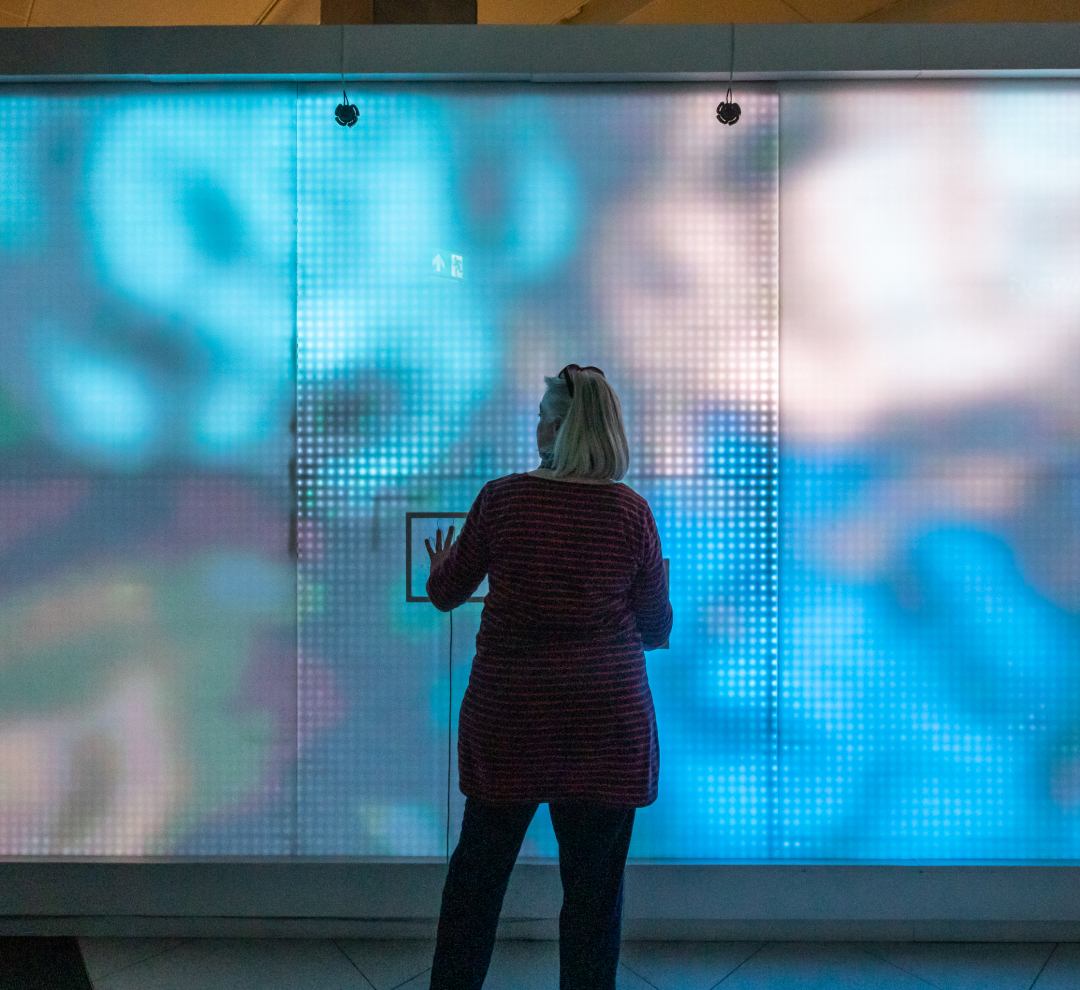2022
Speculative and Critical Design: Approaches and Influences in Education
Creative Informatics Co-Director Michael Smyth and Researcher Ingi Helgason were guest editors on this journal in 2022. Helgason, I., Encinas, E., Mitrovic, I. and Smyth, M., 2022. Speculative and Critical Design: approaches and influences in education. Interaction Design and Architecture (s), (51). https://doi.org./10.55612/s-5002-051-001psi
2022
Multitudes: Widening the Research Agenda For Personal Informatics Design
The personal informatics field claims many potential benefits for users, from self-reflection to self-improvement. However, despite this focus on the self, the personal informatics literature has given little attention to how the self is conceptualised in tool design. From a starting point that all notions of the self are socially constructed, we draw on critiques of the PI literature to track three key conceptualisations of the self that are prevalent in the personal informatics literature–the unitary self, the lacking self, and the knowable self. Winter, E., Knowles, B., Richards, D., Snooks, K. and Speed, C., 2022. Multitudes: Widening the research agenda for personal informatics design. https://doi.org./10.21606/drs.2022.415
2022
AI and the Conditions of Design: Towards A New Set of Design Ideals
The five papers in the DRS 2022 track “AI and the Conditions of Design: Towards A New Set of Design Ideals” offer radical lenses to change the narrative around AI and open pathways towards pluralist digital futures, signaling redirections for experimenting with more inclusive and imaginative design practices. Giaccardi, E., Speed, C., Redström, J., Ben Allouch, S., Shklovski, I. and Smith, R.C., 2022. AI and the conditions of design: towards a new set of design ideals. https://doi.org./10.21606/drs.2022.1078
2022
Investigating Materiality For a Renewed Focus on Data Design Practice
This paper attempts to question reductionist processes of data science that help sustain digital economies and proposes a new perspective for a data design practice. Lee, Y., Pschetz, L. and Speed, C., 2022. Investigating materiality for a renewed focus on data design practice. https://doi.org./10.21606/drs.2022.350
2022
The Future of Money as a Design Material
For many years the primary representation of value has been money. However complex we perceive its material, social and symbolic characteristics, money is now undergoing significant change as it becomes data. This paper explores the implications for design as a series of technological and regulatory shifts are taking place that are changing the representation of money into data. Speed, C., Rankin, J., Elsden, C. and Vines, J., 2022. The future of money as a design material. https://doi.org./10.21606/drs.2022.785
2022
Computer Vision – ECCV 2022 – 17th European Conference, Tel Aviv, Israel, October 23-27, 2022, Proceedings, Part VIII
StyleBabel is an unique open access dataset of natural language captions and free-form tags describing the artistic style of over 135K digital artworks, collected via a novel participatory method from experts studying at specialist art and design schools. StyleBabel was collected via an iterative method, inspired by ‘Grounded Theory’: a qualitative approach that enables annotation while co-evolving a shared language for fine-grained artistic style attribute description. Ruta, D., Gilbert, A., Aggarwal, P., Marri, N., Kale, A., Briggs, J., Speed, C., Jin, H., Faieta, B., Filipkowski, A. and Lin, Z., 2022, November. StyleBabel: Artistic style tagging and captioning. In European Conference on Computer Vision 2022 (pp. 219-236). Springer. https://doi.org/10.1007/978-3-031-20074-8_13
2022
Towards Sustainable Internet of Things Objects Design Strategies for End-of-Life
Digital technologies are a double-edged sword in the transition to a more sustainable society facing a climate emergency. This paper discusses how Internet of Things (IoT), and associated technologies, are resulting in a proliferation of manufactured objects with useful, yet short lives. Thorp, J, Lechelt, S, Soares, L, Gorkovenko, K, Speed, C, Stead, M, Dunn, N & Richards, D 2023, Towards Sustainable Internet of Things Objects Design Strategies for End-of-Life. in Design for Adaptation Cumulus Conference Proceedings Detroit 2022. 23 edn, vol. 09, Cumulus Conference Proceedings Series, vol. 9, Cumulus, pp. 622-639, Cumulus Conference Detroit 2022, Detroit, Michigan, United States, 2/11/22. https://cumulusassociation.org/resources/conference-proceedings/
2022
User-Friendly Interactive Affective System To Leverage Aggressive Driving Behaviour
Aggressive driving behavior has been proven to be one of the major contributors to road accidents. Traditional solutions to leverage aggressive driving behavior still have some obvious shortcomings such as low user experience and unsatisfactory effectiveness. This article explores user-friendly design method for intervening aggressive driving behavior based on human-centered motivation theory such as persuasive technology. Chen, K., Fu, X. and Speed, C., 2022, October. User-friendly interactive affective system to leverage aggressive driving behavior. In Proceedings of the Tenth International Symposium of Chinese CHI (pp. 50-61). https://doi.org/10.1145/3565698.3565769
2022
Zoom Obscura: Counterfunctional Design For Video-Conferencing.
This paper reports on Zoom Obscura – an artist-based design research project, responding to the ubiquity of video-conferencing as a technical and cultural phenomenon throughout the Covid-19 pandemic. Elsden, C., Chatting, D., Duggan, M., Dwyer, A.C. and Thornton, P., 2022, April. Zoom Obscura: Counterfunctional design for video-conferencing. In Proceedings of the 2022 CHI Conference on Human Factors in Computing Systems (pp. 1-17). https://doi.org/10.1145/3491102.3501973
2022
Data-Driven Innovation for Sustainable Creative Practice
We present a film exhibiting eight case studies of projects dealing with the intersections of environmental sustainability, data and technology, which have all been led by and rooted in the creative industries in Scotland. The film highlights how the creative sector has been utilising data and technology to address the climate crisis, by responding artistically to environmental data, as well as developing tools and technologies to empower individual and systemic change. Through presenting the film, we demonstrate the synergies between HCI research and technology-focussed work in the creative industries, in context of the shared goal of sustainability. Our overarching aim is to promote discussion about how knowledge from the creative industries can be seen as a powerful resource to be learned from in HCI and to inspire further HCI design and research, as well as to demonstrate the potential value of collaborative work between creative practice and HCI. Read More Here: https://doi.org./10.14236/ewic/hci2022.51 and watch the film here: https://vimeo.com/717927131 Lechelt, S., Panneels, I. and Helgason, I., 2022. Data-Driven Innovation for Sustainable Creative Practice. https://vimeo.com/717927131 https://doi.org./10.14236/ewic/hci2022.51
